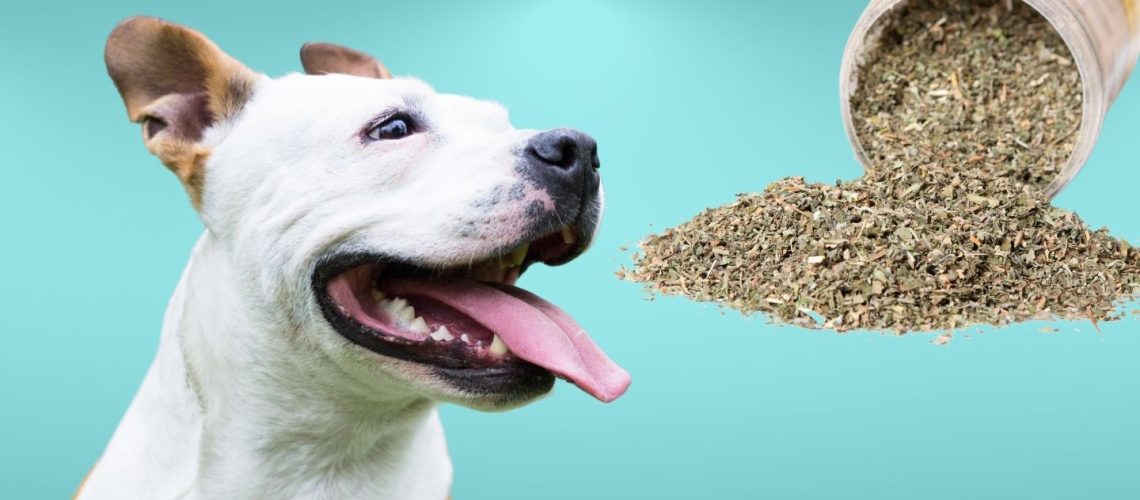The answer is yes, dogs can eat catnip, but it is important to monitor their reaction and intake. Although catnip is more commonly associated with cats, it can also have some positive effects on dogs, such as stress and anxiety reduction. However, excessive consumption can lead to gastrointestinal upset or even toxicity. Therefore, it is important to give your dog the proper portion size and consult with a veterinarian before introducing catnip into their diet.
Effects of Catnip on Dogs
Catnip is a plant that contains the chemical compound nepetalactone, which can have a stimulating or sedative effect on cats. While this effect is not as pronounced in dogs, they may still experience a mild response to catnip. In small amounts, catnip can act as a mild sedative for dogs and can help reduce anxiety or stress. However, excessive consumption can lead to gastrointestinal upset, such as vomiting or diarrhea.
Risks of Feeding Catnip to Dogs
While catnip is generally safe for dogs, it is important to monitor their reaction and intake. Some dogs may have an adverse reaction to catnip, such as hyperactivity or excessive drooling. It is also important to note that catnip can be toxic to dogs in large amounts. It is best to consult with a veterinarian before giving your dog catnip, and to only give it in small, controlled amounts.
Proper Portion Size for Dogs
When it comes to feeding catnip to dogs, it is important to give them the proper portion size. A safe starting amount is 1/8 to 1/4 teaspoon of dried catnip per 10 pounds of body weight. This can be mixed with their regular food or offered as a treat. It is important to closely monitor their reaction and adjust the amount accordingly. As with any treat, catnip should only be given in moderation and should not make up a significant portion of your dog's diet.
Benefits of Catnip for Dogs
While catnip is more commonly associated with cats, there are some potential benefits for dogs as well. These include:
Stress and Anxiety Reduction
Catnip can act as a mild sedative for dogs, which may help to reduce stress and anxiety. This can be especially helpful during times of change or when introducing your dog to new environments.
Digestive Aid
Catnip has been known to help with minor gastrointestinal issues in dogs, such as gas or mild indigestion. However, it is important not to use catnip as a treatment for more serious digestive problems without consulting a veterinarian.
Training Aid
Catnip can be used as a natural reward during training sessions, as many dogs are attracted to the scent. This can help reinforce positive behaviors and make training more enjoyable for both you and your dog.
Alternatives to Catnip for Dogs
If you are concerned about the potential risks of catnip for your dog, there are several alternatives that offer similar benefits:
Chamomile
Chamomile is a mild sedative that can help to reduce stress and anxiety in dogs. It can be given as a tea or in the form of a supplement.
Valerian Root
Valerian root is another herbal remedy that can help to reduce stress and anxiety in dogs. It can also help to promote relaxation and improve sleep quality.
Lavender
Lavender is a calming herb that can be used to help dogs relax and reduce anxiety. It can be used in the form of essential oils, which can be diffused in your home or applied to your dog's bedding.
Safety Precautions When Giving Your Dog Catnip
When giving your dog catnip, it is important to take some precautions to ensure their safety:
Choose High-Quality Catnip
Not all catnip is created equal, so it is important to choose a high-quality, organic product that is free from pesticides and other harmful chemicals.
Start with Small Amounts
Always start with a small amount of catnip and closely monitor your dog's reaction. This will help you determine if catnip is appropriate for your dog and allow you to adjust the dosage as needed.
Consult Your Veterinarian
Before giving your dog any new supplement or treatment, it is always a good idea to consult with your veterinarian. They can provide guidance on whether catnip is appropriate for your dog and help you determine the correct dosage.
Conclusion
While dogs can consume catnip, it is important to closely monitor their reaction and intake. Catnip can offer some benefits for dogs, such as stress and anxiety reduction, but it should be given in moderation and under the guidance of a veterinarian. By taking the necessary precautions and being aware of potential risks, you can ensure that your dog enjoys the benefits of catnip in a safe and responsible manner.











